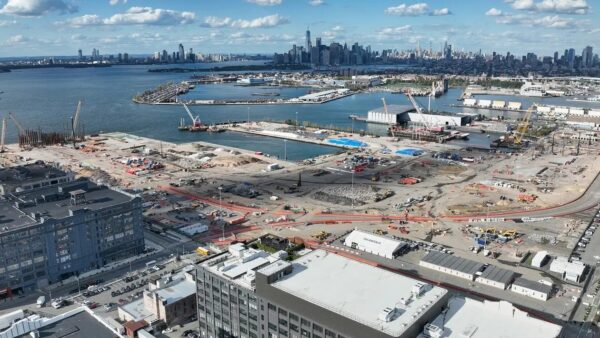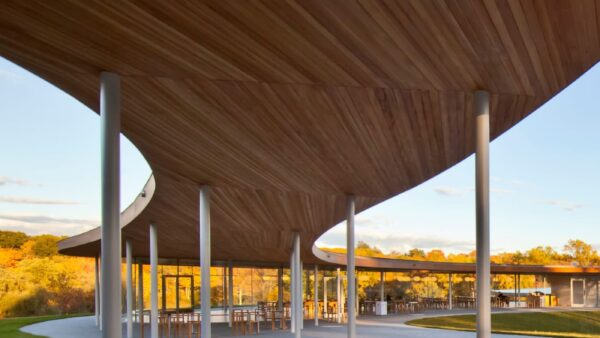By Neil Coker in Liberia

Fufu is the staple carb of West Africa. It takes some getting used to if you’re not from here.
It’s made from any of various starchy vegetables – cassava, yam, maize – which are ground into a paste, boiled and served up as dough.
What you do with it is grab some, shape it into a little shovel with your fingers, and use it to scoop up the stew, relish, soup or whatever else is offered.
Then you pop it in your mouth. It’s calorific, available, and it works.
I can eat it but I prefer a steak.
The subject came up immediately on my arrival in Monrovia. The topic of food is broached eagerly with newcomers.
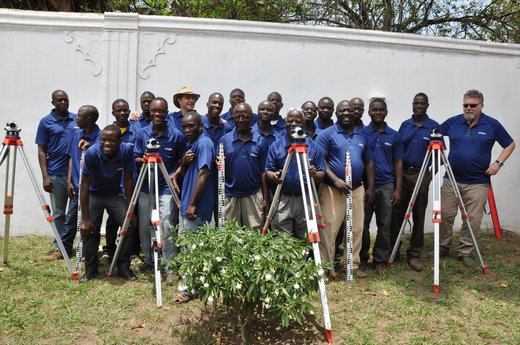
Liberian national site supervisors in training pose with new dumpy levels. Project leader Neil Coker on far right.
But when I said I’d grown up on the site of an iron ore mine along the Mano River in the sixties and seventies, my credentials as a non-tourist were established.
That settled, I began taking in what must be one of the most vibrant cities in West Africa. Everywhere you look there are Liberians trading in one form or another.
They line the streets, steps and gateways to buildings and are keen to make your acquaintance.
Having just come from Sierra Leone, where the infrastructure is in bad shape, I thought it would be the same here – Liberia is still recovering from two devastating civil wars between 1989 and 2003.
I was pleasantly surprised to see the roads around Monrovia and Buchanan in pretty good condition.
But across the country, bridges, railway lines, schools, ports and roads all have to be designed and delivered, and the government is keen to use opportunities provided by the World Bank, USAID and numerous NGOs to do it.
That’s where I come in. I’m here as a consultant project manager to deliver a schools construction programme and to train government, consultant and contractor personnel in project and construction management. It’s part of a World Bank-funded project.
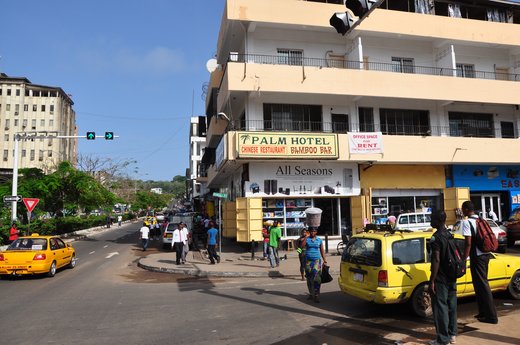
In downtown Monrovia, solar powered traffic lights are going up. A generation of drivers encounter traffic controls for the first time. (Neil Coker)
To help, I have a team of construction managers from South Africa, Cotes d’Ivoire, Sierra Leone and the UK.
Education and skills development are critical and there is a huge amount of interest amongst young (and not so young) construction professionals to absorb international standards.
Our 12-week programme is targeted at 22 national construction supervisors, who have varied levels of experience and expertise, plus a senior management group of 12 from the government ministry whose projects my team are delivering.
This is succession training – we need to develop their skills so they can take over from us expats.
To develop the project managers to an internationally accredited standard, we’re using the CIOB’s “Code of Practice for Project Management” for the senior programme.
Â
The basics
We’ve also developed a foundation level programme for what you might call the basics.
For example, some had never used a Dumpy Level before, so we brought in four sets from the UK and have been teaching, mentoring and assessing their new skills.
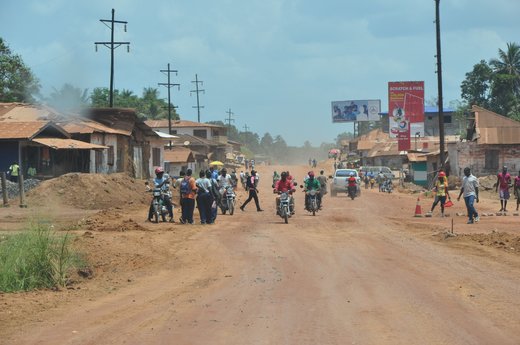
Road work diversions being set out in Buchanan in a project by Chinese contractors with Liberian workers. (Neil Coker)
Also, none of the national staff had ever worked in an environment where safety came first.
The training is very hands-on and the supervision is intense, with one supervisor to five students being the norm.
All over the country, young entrepreneurs are establishing small construction companies on shoestring budgets.
With little technical or commercial support, they struggle to comply with bid requirements and their education and training is part of my role, too.
By mentoring bidders we hope to raise the standard of bids, and we’re helping smaller contractors improve process, document control, commercial management and programming.
Â
Ingenuity
Because we don’t have the supplies or logistics one takes for granted in the developed world, local innovation is crucial, and this is something they’ve got nailed.
Scaffolding is expensive and hard to get, so bush sticks are used, often to rather good effect.
Basic equipment is lacking, but blacksmiths around the country do a roaring trade in wheelbarrows made from old car wheels and rebar.
It’s an education just driving around and seeing what they can do.
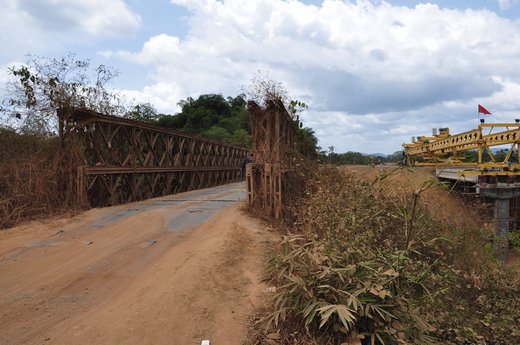
Degraded bridge in Bassa County, Liberia, with new one being built by a Chinese contractor. (Neil Coker)
Even though the domestic industry is unsophisticated – and no wonder, with all they’ve been through – individuals and companies are eager to meet the opportunities presented by their promising new market.
They need international norms and practices, but I hope they keep their vibrancy and ingenuity, because success anywhere and in any field requires a mix of what’s best from the world out there, and what works at home.
So, steak and Fufu anyone…?
Neil Coker is a project manager with experience delivering projects in the UK, Middle East and Africa. He is leading a World Bank funded construction education program in Liberia. Follow his experiences on Twitter: @CokerNeil


